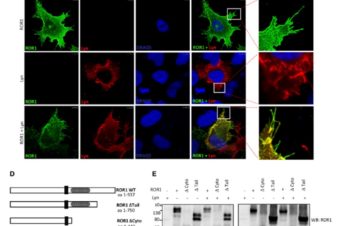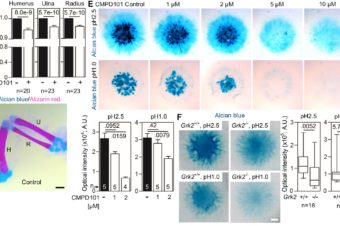It is known that the circadian clock in Drosophila can be sensitive to static magnetic fields (MFs). Man-made radiofrequency (RF) electromagnetic fields have been shown to have effects on animal orientation responses at remarkably weak intensities in the nanotesla range. Here, we tested if weak broadband RF fields also affect the circadian rhythm of the German cockroach (Blatella
Similar Posts
Lyn Phosphorylates and Controls ROR1 Surface Dynamics During Chemotaxis of CLL Cells
Abstract: Chronic lymphocytic leukemia (CLL) and mantle cell lymphoma (MCL) are malignancies characterized by the... Read More
Role of Cell Death in Cellular Processes During Odontogenesis
Abstract: The development of a tooth germ in a precise size, shape, and position in... Read More
LuminoCell: a versatile and affordable platform for real-time monitoring of luciferase-based reporters
Abstract: Luciferase reporter assays represent a simple and sensitive experimental system in cell and molecular... Read More
The effects of nano-sized PbO on biomarkers of membrane disruption and DNA damage in a sub-chronic inhalation study on mice
Although the production of engineered nanoparticles increases our knowledge of toxicity and mechanisms of bioactivity... Read More
Protease Associated Domain of RNF43 Is Not Necessary for the Suppression of Wnt/β-catenin Signaling in Human Cells
Another paper out and another step closer to a better understanding of #RNF43 tumor #suppressor... Read More
Mutations in GRK2 cause Jeune syndrome by impairing Hedgehog and canonical Wnt signaling
Mutations in genes affecting primary cilia cause ciliopathies, a diverse group of disorders often affecting... Read More





